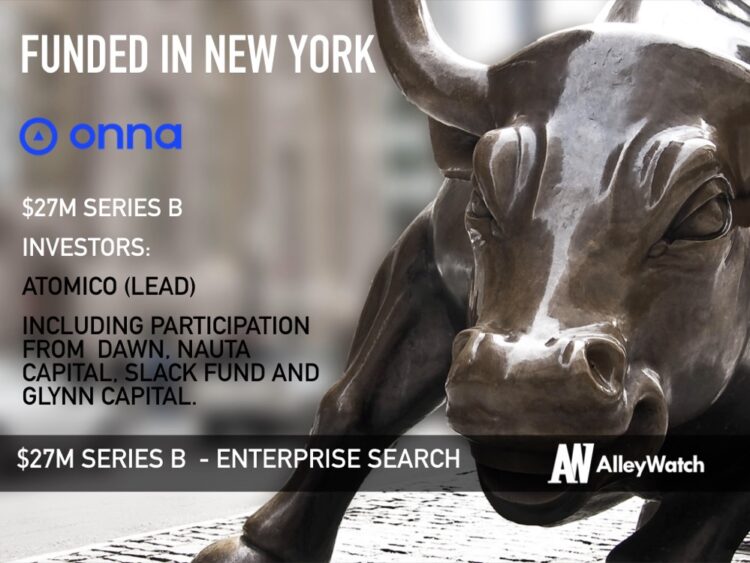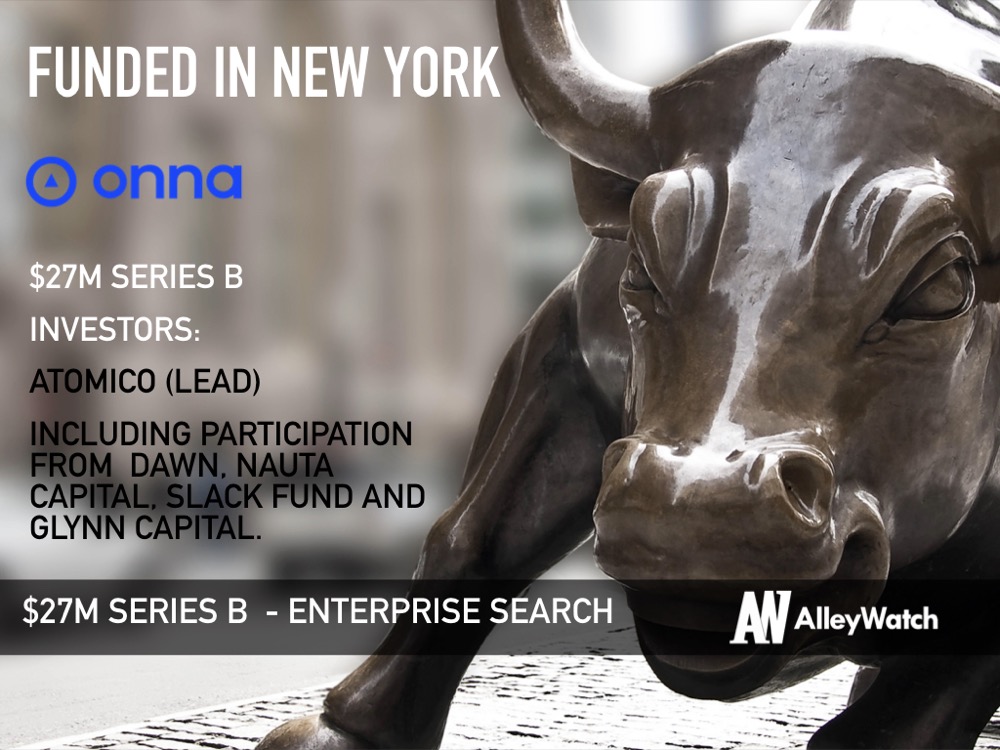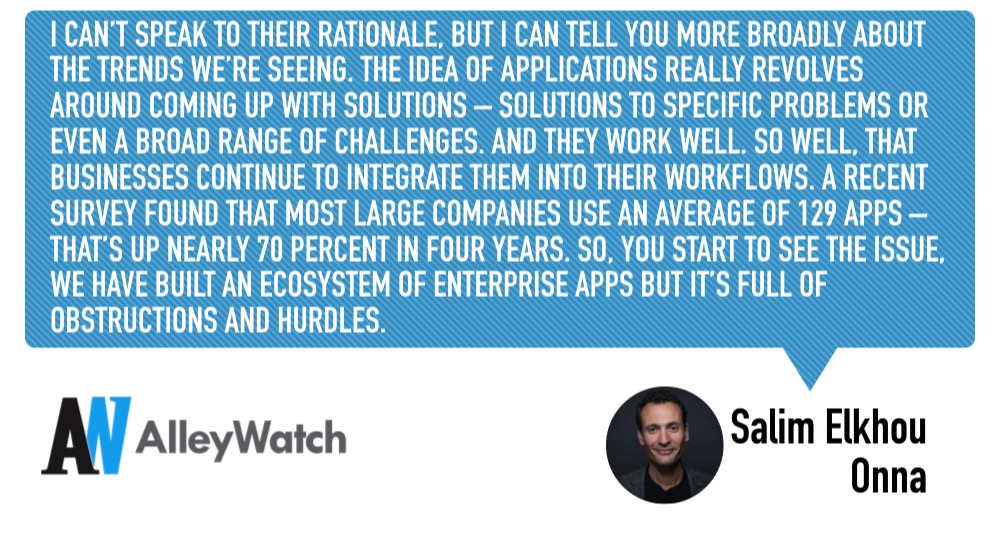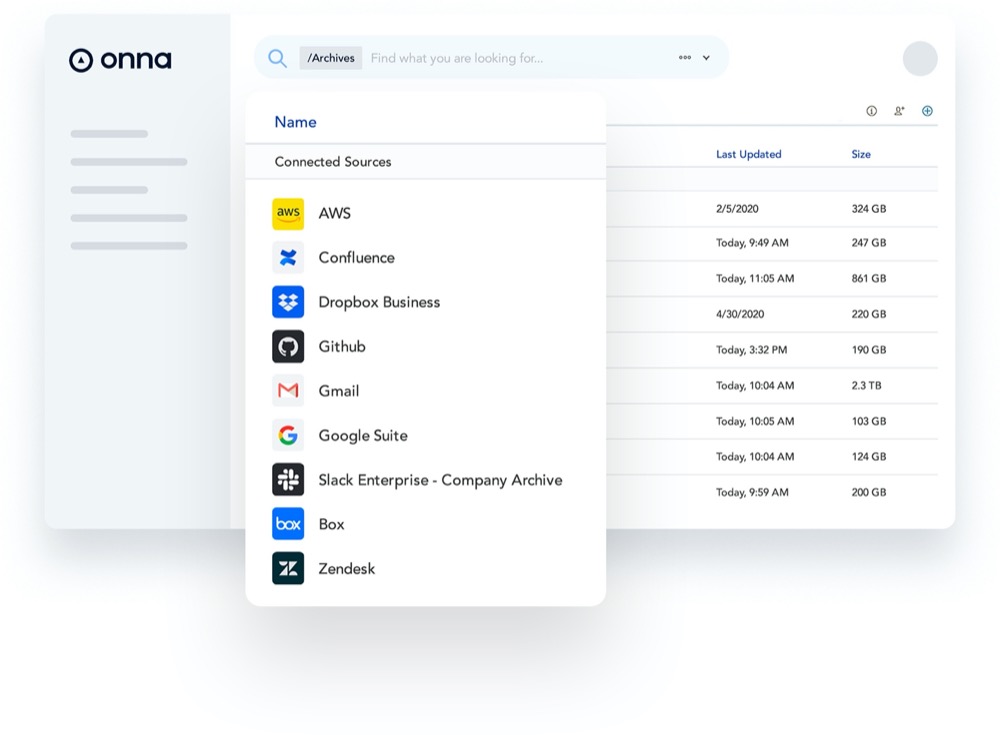With companies using an average of 88 different apps to power their workforce, integrating knowledge into one centralized location has been extremely difficult. Onna solves this pain point with its Knowledge Integration Platform. Companies now have the ability to centralize, find, manage, and track knowledge – which includes text, documents, pictures, contacts, articles, emails, chats, and contextualized employee performance information through Onna’s open API. The out-of-the-box integration natively supports commonly used apps like Slack, Zendesk, Twitter, and Dropbox. By 2025, Onna plans on being at the core of any organization’s knowledge infrastructure.
AlleyWatch caught up with CEO Salim Elkhou to learn more about how Onna solves the issue of knowledge fragmentation at the enterprise level, the company’s expansion plans, and recent funding, which brings the total funding to $43M across three rounds.
Who were your investors and how much did you raise?
Onna raised a $27M Series B round led by Atomico, with participation from Dawn, Nauta Capital, Slack Fund, and Glynn Capital.
Tell us about the product or service that Onna offers.
Onna is the world’s first Knowledge Integration Platform that unifies data from across cloud computing services and workplace applications. It presents a holistic and secure view of a company’s collective knowledge, allowing people to find what they need, wherever the information resides. It’s also designed to work within apps – so even if you don’t see it, it serves the same function, improving user experience and boosting productivity.
What inspired the start of Onna?
I used to run a small business specializing in research for larger companies. Finding public information was often much more straightforward than accessing knowledge from within those companies, purely because it was distributed across so many platforms and different teams within the company often didn’t talk to each other. This fragmentation caused so many delays which, of course, led to frustrations and ultimately cost money. After one particularly challenging project in California, I was exhausted and had a realization on the plane back home: it was possible to fix the problem, but the tool didn’t exist yet. So, I decided to build it. And that’s how Onna started.
Onna is unique because it is cloud-native and collaboration focused; it doesn’t matter if companies are integrating knowledge from 20 applications or 200. Onna is an open API, making all the organized content within an organization both accessible with a simple search and making Onna a platform to build upon. Through native integrations to cloud tools or the addition of machine learning models, the more people build bespoke workflow apps on top of Onna inside an organization, the more valuable and powerful it will be to all employees. Finally, by helping companies discover smarter, Onna can help power data-led automation on issues from compliance to customer support and HR.
What market does Onna target and how big is it?
Onna is addressing the problem of knowledge fragmentation which affects every individual and organization in the knowledge economy, so the market is quite vast. Today we are focused on the enterprise market, but we are committed to making Onna’s value accessible to a broader audience.
What’s your business model?
Onna is a SaaS business. We charge organizations a small amount for each user. What’s so encouraging is that our clients tell us they actually end up saving money by using Onna because having a centralized, searchable and secure platform where company knowledge can be more easily accessed leads to significant improvements in productivity & more strategic decision making.
How has COVID-19 impacted your business?
Our team has adjusted well to working remotely. We have embraced this model from day one, so we transitioned well into having a remote workforce. For our customers, this pandemic has accelerated the need for collaboration applications, which in turn accelerates the demand for Onna.
What was the funding process like?
While it was extremely unusual to go through such a process 100% over video, and in such uncertain times, we were fortunate that our investors had quickly transitioned to working remotely and continued seeing the value of Onna in the short and long term.
What are the biggest challenges that you faced while raising capital?
Having completed this round amidst a global pandemic reaffirmed our strong belief that organizations need a knowledge integration platform and the importance of having knowledge connected and searchable. It was great to see that new investors shared this vision and existing partners invested more in us despite the existing climate.
What factors about your business led your investors to write the check?
I can’t speak to their rationale, but I can tell you more broadly about the trends we’re seeing. The idea of applications really revolves around coming up with solutions – solutions to specific problems or even a broad range of challenges. And they work well. So well, that businesses continue to integrate them into their workflows. A recent survey found that most large companies use an average of 129 apps – that’s up nearly 70 percent in four years. So, you start to see the issue, we have built an ecosystem of enterprise apps but it’s full of obstructions and hurdles.
For this ecosystem to truly thrive and realize its potential, everything needs to work together. The shift to remote working has made this an even greater priority because we’re increasingly relying on new digital tools to connect us. Collaboration requires connection – not siloes. So, with our partners who are the best in the business, that’s what Onna is looking to create.
What are the milestones you plan to achieve in the next six months?
We’re planning on growing our partner ecosystem, as well as hiring key roles within various parts of the organization.
What advice can you offer companies in New York that do not have a fresh injection of capital in the bank?
Address a meaningful problem, create value, and demonstrate how customers benefit from using your service. There will be increasing scrutiny of any outlay of capital for the foreseeable future – so it’s critical that your value proposition is clear for both customers and potential investors.
There will be increasing scrutiny of any outlay of capital for the foreseeable future – so it’s critical that your value proposition is clear for both customers and potential investors.
Where do you see the company going now over the near term?
By 2025, Onna aims to be core to any individual or company’s knowledge infrastructure, enabling all knowledge to be accessible, useful, secure and built upon to create a whole new generation of efficient workflow applications.
What’s your favorite restaurant in the city?
I’ve been eating lots of home-cooked meals, but look forward to going out to all the amazing restaurants NYC has to offer!
You are seconds away from signing up for the hottest list in New York Tech! Join the millions and keep up with the stories shaping entrepreneurship. Sign up today







